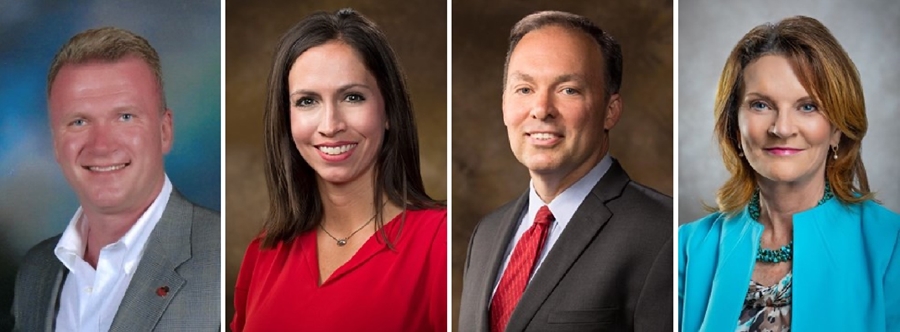Faculty in the University of Arkansas Educational Leadership program say intimate, compassionate mentor-mentee relationships are crucial — especially during a crisis — in their preparation courses.
In response to the COVID-19 pandemic, four professors in the program conducted a self-study of their mentorship practices, and their findings were recently published in the International Journal of Mentoring and Coaching in Education. The article, titled "Redefining Mentorship in the Era of Crisis: Responding to COVID-19 through Compassionate Relationships," explores mentorship practices in times of crisis and considers how mentorship could be improved to support students earning educational leadership degrees.
"When mentorship is grounded in reciprocal compassion, intimacy, vulnerability, and support for others' holistic well-being, it can strengthen and sustain mentees and mentors through times of immense stress and hardship," said Kara Lasater, co-author and assistant professor in the program. "COVID-19 challenged us, and our students, in unprecedented ways. But it also created beautiful opportunities for us to connect with each other in deeply meaningful ways."
U of A professors Christy Smith, John Pijanowski and Kevin Brady, all in the College of Education and Health Professions, are also co-authors. Smith said it was powerful to reflect on the impact the faculty's mentoring practices have on the broader educational community.
"Each of our graduate students are educators who are working in schools as teachers or administrators, so they are on the front lines of the pandemic," she said. "The realization that the manner in which we supported our students would have a ripple effect on their ability to assist the teachers and students with whom they work was nothing less than humbling."
For the final draft of the paper, the authors were asked by the editor to describe their working relationship that made this sort of collaborative reflection possible. As the authors stated in their article, "Unquestionably, we respect each other's professional capabilities, but, more importantly, we value one another's benevolence, humility, support, trustworthiness, and care. These relationships manifest in our co-construction of curriculum, co-mentorship around teaching, and collaborative research endeavors. Through our trusting relationships, and history of working in concert, we easily fell into dialogue about our experiences with students during the pandemic."
The educational leadership graduate degree program prepares students for a variety of leadership roles like school principal or superintendent, as well as federal and state governmental positions in education and faculty positions in higher education.
The program was recently ranked No. 27 in the nation among "Educational Administration and Supervision" programs in the 2021 U.S. News and World Report's "Best Online Programs" rankings.
Brady, program coordinator, welcomes the increase in the national rankings. He believes the program's intentional focus on innovative online teaching, combined with quality mentoring interactions with students, are two leading factors in the program's growing reputation as a leader in the field of educational administration and supervision.
Educational Leadership is one of the largest graduate programs in the U of A College of Education and Health Professions. As of fall 2020, 125 students were enrolled in the following programs:
- Ed.D. in Educational Leadership
- Ed.S. in Educational leadership
- M.Ed. in Educational Leadership
- Post-Master's Certificates in Building-Level and District-Level Administration
Topics
Contacts
Shannon G. Magsam, director of communications
College of Education and Health Professions
479-575-3138, magsam@uark.edu
